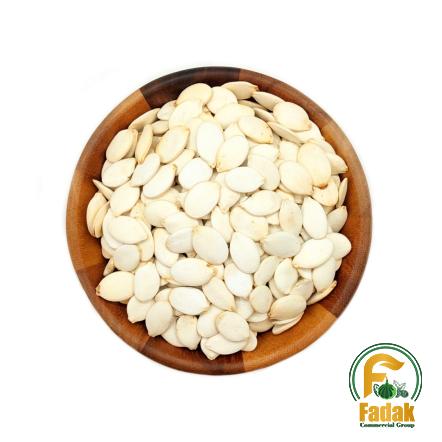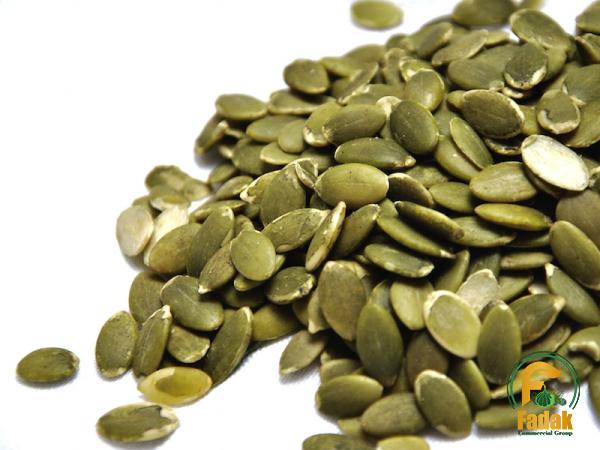Cashews, also known as “nature’s vitamin pill,” are a popular and nutritious snack enjoyed worldwide. Although often considered a nut, cashews technically belong to the seed family. These tasty delights have a fascinating origin that dates back centuries and encompasses a rich history of cultivation, trade, and culinary appreciation. This article will delve into the story behind the origin of cashews, highlighting their journey from their tropical roots to becoming a global pantry staple. 1. The Tropical Origins: Cashews (Anacardium occidentale) originate from the northeastern regions of Brazil, specifically the Amazon rainforest. The evergreen cashew tree, known for its distinct shape and vibrant foliage, thrives in tropical climates characterized by hot and humid conditions. The tree belongs to the Anacardiaceae family, which includes mangoes, pistachios, and poison ivy. 2. Portuguese Exploration and Introduction to Asia: The Portuguese colonizers were the first to encounter cashews during their exploration of the Atlantic coast of Brazil in the 16th century. Fascinated by the peculiar fruit, they introduced cashews to their colony of Goa, located on the west coast of India. The trees adapted well to the local climate, and under Portuguese rule, cashew cultivation rapidly spread throughout other parts of India, including Kerala and Tamil Nadu. 3. Cashew’s Journey to East Africa: In the early 17th century, Portuguese merchants introduced cashews to their colony in Mozambique on the southeastern coast of Africa. The trees took root in the fertile lands, and by the late 19th century, cashews became a major crop in the region. From Mozambique, cashews gradually made their way to other parts of East Africa, including Tanzania, Kenya, and Madagascar. 4. Expansion into Vietnam: The introduction of cashew trees to Vietnam can be traced back to French colonialists in the 19th century. Initially, they were primarily grown for decorative purposes. However, it was not until the late 20th century, after the Vietnam War, that cashew cultivation gained momentum. Vietnam rapidly emerged as a dominant player in the global cashew market, surpassing India as the world’s leading exporter in the early 1990s.

nut
 5. The Rise of Cashews in West Africa: While cashews were making their mark in East Africa and Asia, another significant development was occurring in West Africa. During the period of colonization, the Portuguese brought cashews to Guinea-Bissau, Cape Verde, and the Nigerian coast. The climate and soil conditions in these regions proved ideal for cashew cultivation, leading to the establishment of large cashew plantations. Today, West Africa accounts for a significant portion of global cashew production. 6. Modern-Day Cashew Cultivation: Cashew cultivation has continued to evolve over the years with the aim of improving yields and maintaining quality. Various countries have embraced modern agricultural practices, including genetic improvements, improved irrigation systems, pest management, and sustainable farming methods. These advancements not only ensure the availability of cashews year-round but also promote the economic empowerment of farmers in cashew-producing regions. 7. Global Trade and Consumption: Cashews have transcended cultural boundaries and are now an integral part of global cuisine. The expansion of trade networks, fueled by the efforts of early colonizers, has significantly contributed to the international popularity of cashews. Today, the global cashew market is dominated by exporting countries such as Vietnam, India, Brazil, Ivory Coast, and Nigeria, while consumer demand remains high in countries across Asia, Europe, North America, and beyond. 8. Culinary Applications: Cashews have a versatile nature, making them a popular ingredient in various culinary creations worldwide. Roasted cashews are a classic snack, while cashew butter and cashew milk have gained popularity as dairy alternatives. Cashews are also widely used in savory dishes, such as curries, stir-fries, and salads, adding a rich and creamy texture to the recipes. Additionally, cashews serve as a base for vegan cheeses, creamy spreads, and desserts like cashew cheesecake and cashew ice cream. Conclusion: The journey of cashews from their tropical origins in Brazil to becoming an integral part of global cuisine is a testament to human innovation, exploration, and the ability of plants to adapt and thrive in diverse environments. Today, cashews continue to captivate taste buds worldwide and contribute to the economic growth of the regions where they are cultivated. Whether enjoyed as a snack or incorporated into various dishes, cashews symbolize the rich history and culinary diversity of our interconnected world. I. Cashews as a Lucrative Business Venture Cashews have not only won over taste buds but have also captured the attention of entrepreneurs and investors. The success of the cashew industry stems from the growing global demand for this versatile nut and the potential for profitable returns. Let’s explore the various aspects of the cashew business and the opportunities it presents. 1. Cashew Cultivation: A Lucrative Agricultural Venture Cashew cultivation has proven to be a profitable venture for farmers in cashew-growing regions.
5. The Rise of Cashews in West Africa: While cashews were making their mark in East Africa and Asia, another significant development was occurring in West Africa. During the period of colonization, the Portuguese brought cashews to Guinea-Bissau, Cape Verde, and the Nigerian coast. The climate and soil conditions in these regions proved ideal for cashew cultivation, leading to the establishment of large cashew plantations. Today, West Africa accounts for a significant portion of global cashew production. 6. Modern-Day Cashew Cultivation: Cashew cultivation has continued to evolve over the years with the aim of improving yields and maintaining quality. Various countries have embraced modern agricultural practices, including genetic improvements, improved irrigation systems, pest management, and sustainable farming methods. These advancements not only ensure the availability of cashews year-round but also promote the economic empowerment of farmers in cashew-producing regions. 7. Global Trade and Consumption: Cashews have transcended cultural boundaries and are now an integral part of global cuisine. The expansion of trade networks, fueled by the efforts of early colonizers, has significantly contributed to the international popularity of cashews. Today, the global cashew market is dominated by exporting countries such as Vietnam, India, Brazil, Ivory Coast, and Nigeria, while consumer demand remains high in countries across Asia, Europe, North America, and beyond. 8. Culinary Applications: Cashews have a versatile nature, making them a popular ingredient in various culinary creations worldwide. Roasted cashews are a classic snack, while cashew butter and cashew milk have gained popularity as dairy alternatives. Cashews are also widely used in savory dishes, such as curries, stir-fries, and salads, adding a rich and creamy texture to the recipes. Additionally, cashews serve as a base for vegan cheeses, creamy spreads, and desserts like cashew cheesecake and cashew ice cream. Conclusion: The journey of cashews from their tropical origins in Brazil to becoming an integral part of global cuisine is a testament to human innovation, exploration, and the ability of plants to adapt and thrive in diverse environments. Today, cashews continue to captivate taste buds worldwide and contribute to the economic growth of the regions where they are cultivated. Whether enjoyed as a snack or incorporated into various dishes, cashews symbolize the rich history and culinary diversity of our interconnected world. I. Cashews as a Lucrative Business Venture Cashews have not only won over taste buds but have also captured the attention of entrepreneurs and investors. The success of the cashew industry stems from the growing global demand for this versatile nut and the potential for profitable returns. Let’s explore the various aspects of the cashew business and the opportunities it presents. 1. Cashew Cultivation: A Lucrative Agricultural Venture Cashew cultivation has proven to be a profitable venture for farmers in cashew-growing regions.
Specifications of nut
 The cashew tree is low-maintenance and resilient, making it an attractive option for agricultural enthusiasts. With proper cultivation practices, farmers can yield significant cashew nut harvests that can be sold to local markets or exported for international trade. 2. Cashew Processing and Value Addition The cashew processing industry plays a crucial role in the cashew value chain, offering significant business opportunities. After harvest, cashews go through a series of processes, including drying, shelling, peeling, grading, and packaging. Entrepreneurs can invest in cashew processing plants to add value to raw nuts and offer processed cashews in various forms, such as roasted, salted, flavored, or as cashew paste and butter. 3. Export and International Trade Cashews are among the most traded commodities in the world, creating opportunities for individuals and businesses to participate in international trade. Cashew exporting countries, such as Vietnam, India, Brazil, and West African nations, play a pivotal role in meeting global demand. Entrepreneurs can establish export businesses to source cashews from producers and supply them to buyers and distributors worldwide, capitalizing on the growing demand for healthy and natural snack options. 4. Cashews as a Key Ingredient in Food Manufacturing The food manufacturing industry presents substantial opportunities for utilizing cashews as an ingredient. Cashews’ rich and creamy texture, combined with their nutritional profile, makes them a favored choice for various food products. Entrepreneurs can explore partnerships with food manufacturers to supply cashews for use in baked goods, confectionery, snack bars, granolas, nut butters, cereals, and other value-added products. 5. Cashews and the Plant-Based Revolution The rise of the plant-based lifestyle has presented new opportunities for cashews in the food industry. Cashews serve as a versatile substitute for dairy products, making them a crucial ingredient in the booming plant-based milk, cheese, and dessert markets. Entrepreneurs can tap into this growing trend by creating innovative cashew-based products that cater to the increasing demand for dairy alternatives. 6. Health and Wellness Market As a nutrient-dense nut, cashews have a strong presence in the health and wellness market. Cashews are rich in healthy fats, minerals, and vitamins, making them a sought-after snack for health-conscious consumers. Entrepreneurs can cater to this market by developing and marketing premium and organic cashew products, emphasizing their nutritional benefits and promoting them as a guilt-free indulgence.
The cashew tree is low-maintenance and resilient, making it an attractive option for agricultural enthusiasts. With proper cultivation practices, farmers can yield significant cashew nut harvests that can be sold to local markets or exported for international trade. 2. Cashew Processing and Value Addition The cashew processing industry plays a crucial role in the cashew value chain, offering significant business opportunities. After harvest, cashews go through a series of processes, including drying, shelling, peeling, grading, and packaging. Entrepreneurs can invest in cashew processing plants to add value to raw nuts and offer processed cashews in various forms, such as roasted, salted, flavored, or as cashew paste and butter. 3. Export and International Trade Cashews are among the most traded commodities in the world, creating opportunities for individuals and businesses to participate in international trade. Cashew exporting countries, such as Vietnam, India, Brazil, and West African nations, play a pivotal role in meeting global demand. Entrepreneurs can establish export businesses to source cashews from producers and supply them to buyers and distributors worldwide, capitalizing on the growing demand for healthy and natural snack options. 4. Cashews as a Key Ingredient in Food Manufacturing The food manufacturing industry presents substantial opportunities for utilizing cashews as an ingredient. Cashews’ rich and creamy texture, combined with their nutritional profile, makes them a favored choice for various food products. Entrepreneurs can explore partnerships with food manufacturers to supply cashews for use in baked goods, confectionery, snack bars, granolas, nut butters, cereals, and other value-added products. 5. Cashews and the Plant-Based Revolution The rise of the plant-based lifestyle has presented new opportunities for cashews in the food industry. Cashews serve as a versatile substitute for dairy products, making them a crucial ingredient in the booming plant-based milk, cheese, and dessert markets. Entrepreneurs can tap into this growing trend by creating innovative cashew-based products that cater to the increasing demand for dairy alternatives. 6. Health and Wellness Market As a nutrient-dense nut, cashews have a strong presence in the health and wellness market. Cashews are rich in healthy fats, minerals, and vitamins, making them a sought-after snack for health-conscious consumers. Entrepreneurs can cater to this market by developing and marketing premium and organic cashew products, emphasizing their nutritional benefits and promoting them as a guilt-free indulgence.
buy nut
 7. Sustainability and Fair Trade Initiatives The cashew industry is increasingly emphasizing sustainability, fair trade, and environmental practices. Companies and entrepreneurs committed to these values can establish businesses that prioritize social and environmental responsibility. By fostering relationships with small-scale farmers, implementing ethical sourcing practices, and promoting sustainable farming techniques, entrepreneurs can build brands that resonate with conscious consumers seeking ethically-produced cashew products. 8. Cashews and Culinary Tourism Cashew-producing regions often attract tourists interested in experiencing the origin and processing of cashews. Entrepreneurs in these areas can leverage the popularity of culinary tourism by establishing cashew-focused experiences, such as farm tours, tastings, cooking classes, and cultural immersion activities. This venture not only supports local economies but also creates an avenue for educational and sensory exploration for visitors. 9. Private Label and Specialty Products The private label market offers opportunities for entrepreneurs to develop their own brand of cashew products. From cashew snacks to cashew-infused oils, vinegars, and seasonings, entrepreneurs can create unique and specialized offerings to cater to specific customer preferences. Establishing a private label brand allows entrepreneurs to differentiate themselves in the market and cultivate brand loyalty through quality, innovation, and personalized customer experiences. 10. Research and Development Opportunities The cashew industry continually presents research and development opportunities for entrepreneurs. From improving cultivation practices to enhancing processing techniques, entrepreneurs and scientists can collaborate to develop innovations that increase efficiency, productivity, and product quality. These advancements not only contribute to the overall development of the industry but also provide entrepreneurs with a competitive edge through technological advancements. Conclusion: The origin of cashews and their journey from tropical rainforests to global pantry staples is a testament to their widespread popularity and versatility. The cashew industry offers entrepreneurs a wide range of business opportunities, spanning cultivation, processing, exporting, food manufacturing, sustainability initiatives, and more. With a focus on innovation, value addition, and understanding consumer trends, entrepreneurs can capitalize on the growing demand for this nutrient-rich nut and create successful ventures that cater to the thriving cashew market.
7. Sustainability and Fair Trade Initiatives The cashew industry is increasingly emphasizing sustainability, fair trade, and environmental practices. Companies and entrepreneurs committed to these values can establish businesses that prioritize social and environmental responsibility. By fostering relationships with small-scale farmers, implementing ethical sourcing practices, and promoting sustainable farming techniques, entrepreneurs can build brands that resonate with conscious consumers seeking ethically-produced cashew products. 8. Cashews and Culinary Tourism Cashew-producing regions often attract tourists interested in experiencing the origin and processing of cashews. Entrepreneurs in these areas can leverage the popularity of culinary tourism by establishing cashew-focused experiences, such as farm tours, tastings, cooking classes, and cultural immersion activities. This venture not only supports local economies but also creates an avenue for educational and sensory exploration for visitors. 9. Private Label and Specialty Products The private label market offers opportunities for entrepreneurs to develop their own brand of cashew products. From cashew snacks to cashew-infused oils, vinegars, and seasonings, entrepreneurs can create unique and specialized offerings to cater to specific customer preferences. Establishing a private label brand allows entrepreneurs to differentiate themselves in the market and cultivate brand loyalty through quality, innovation, and personalized customer experiences. 10. Research and Development Opportunities The cashew industry continually presents research and development opportunities for entrepreneurs. From improving cultivation practices to enhancing processing techniques, entrepreneurs and scientists can collaborate to develop innovations that increase efficiency, productivity, and product quality. These advancements not only contribute to the overall development of the industry but also provide entrepreneurs with a competitive edge through technological advancements. Conclusion: The origin of cashews and their journey from tropical rainforests to global pantry staples is a testament to their widespread popularity and versatility. The cashew industry offers entrepreneurs a wide range of business opportunities, spanning cultivation, processing, exporting, food manufacturing, sustainability initiatives, and more. With a focus on innovation, value addition, and understanding consumer trends, entrepreneurs can capitalize on the growing demand for this nutrient-rich nut and create successful ventures that cater to the thriving cashew market.










Your comment submitted.